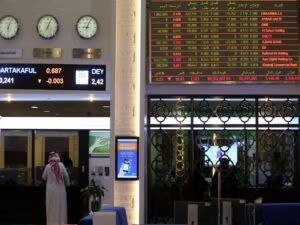China’s latest Finance Ministry briefing left investors frustrated, as the anticipated bold fiscal measures failed to materialize. Despite promises of more support for the struggling property sector and potential increased government borrowing, the absence of a clear financial stimulus package left markets underwhelmed.
Finance Minister Lan Fo’an’s briefing on Saturday fell short of the aggressive fiscal measures that investors had hoped for, leading to concerns that the recent market volatility will persist. The lack of new incentives to stimulate consumption, a key weak point in China’s economy, has further dampened investor sentiment.
Many had expected a large-scale fiscal boost, potentially worth up to 2 trillion yuan ($283 billion), to revitalize the economy. However, no headline figure was provided, and the markets responded negatively to the vague promises. Shen Meng, a director at Chanson & Co., noted the gap between market expectations and the announced measures, leading to an overall negative sentiment.
This disappointment comes after a recent rally in Chinese equities, sparked by stimulus measures introduced in late September. However, without significant new support, the market risks slipping back into its previous cycle of brief gains followed by prolonged losses. The CSI 300 Index, which tracks onshore equities, already posted its largest weekly loss since July ahead of the meeting, and further declines may be on the horizon.
The government’s announcement of special bonds to address unsold housing and possible future stimulus was seen as insufficient to restore investor confidence. Local governments will be allowed to use the bonds to turn unsold homes into subsidized housing, but the lack of a concrete fiscal plan leaves investors waiting for more definitive actions.
As China grapples with weaker-than-expected inflation data and ongoing concerns about deflation, traders are now looking to the upcoming parliamentary session for potential new stimulus announcements. Investors are particularly focused on whether the government will increase sovereign debt issuance or introduce other large-scale measures to stimulate growth.
While the briefing’s cautious approach has raised skepticism among market watchers, all eyes will be on the next policy moves to see if Beijing can regain market momentum.





